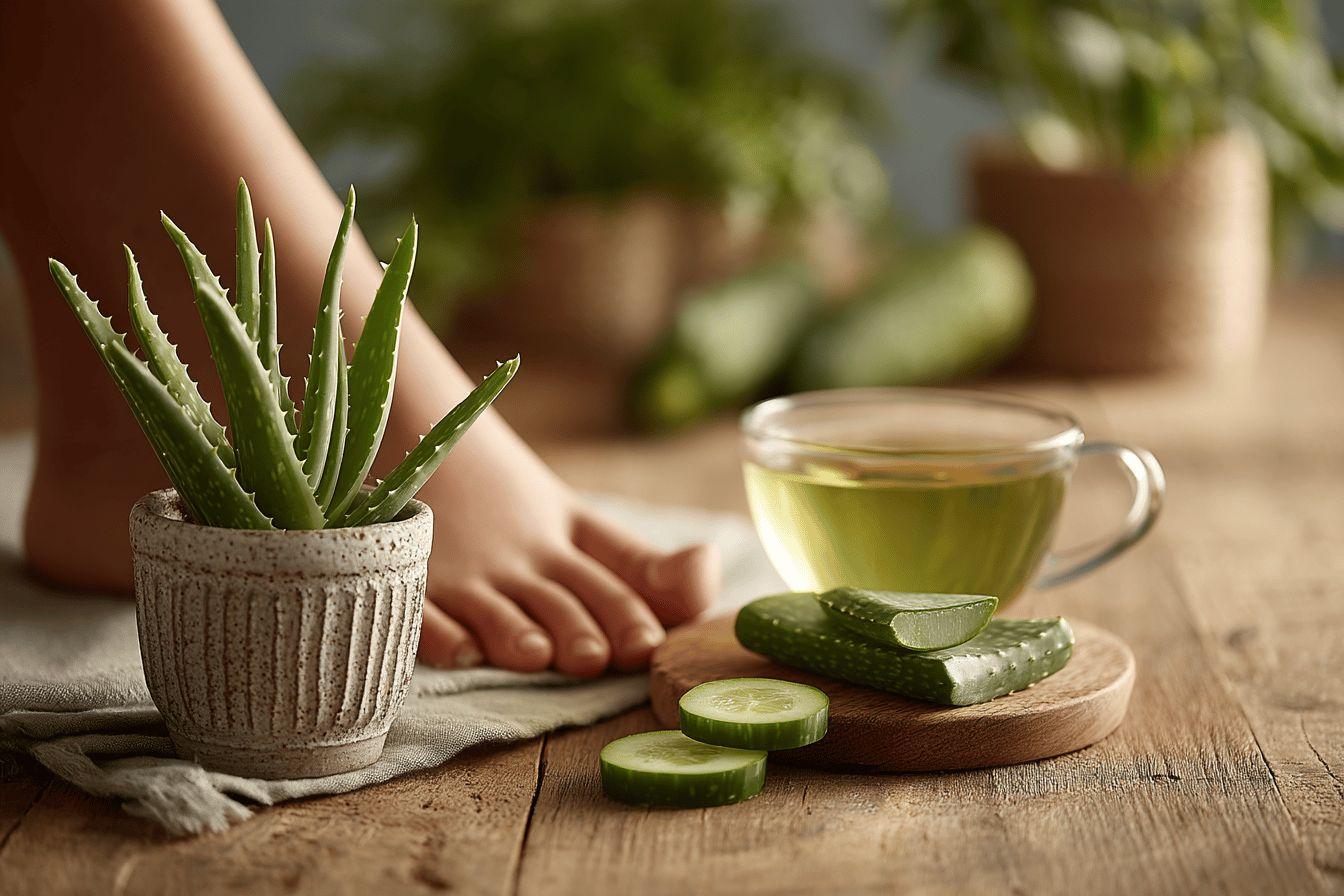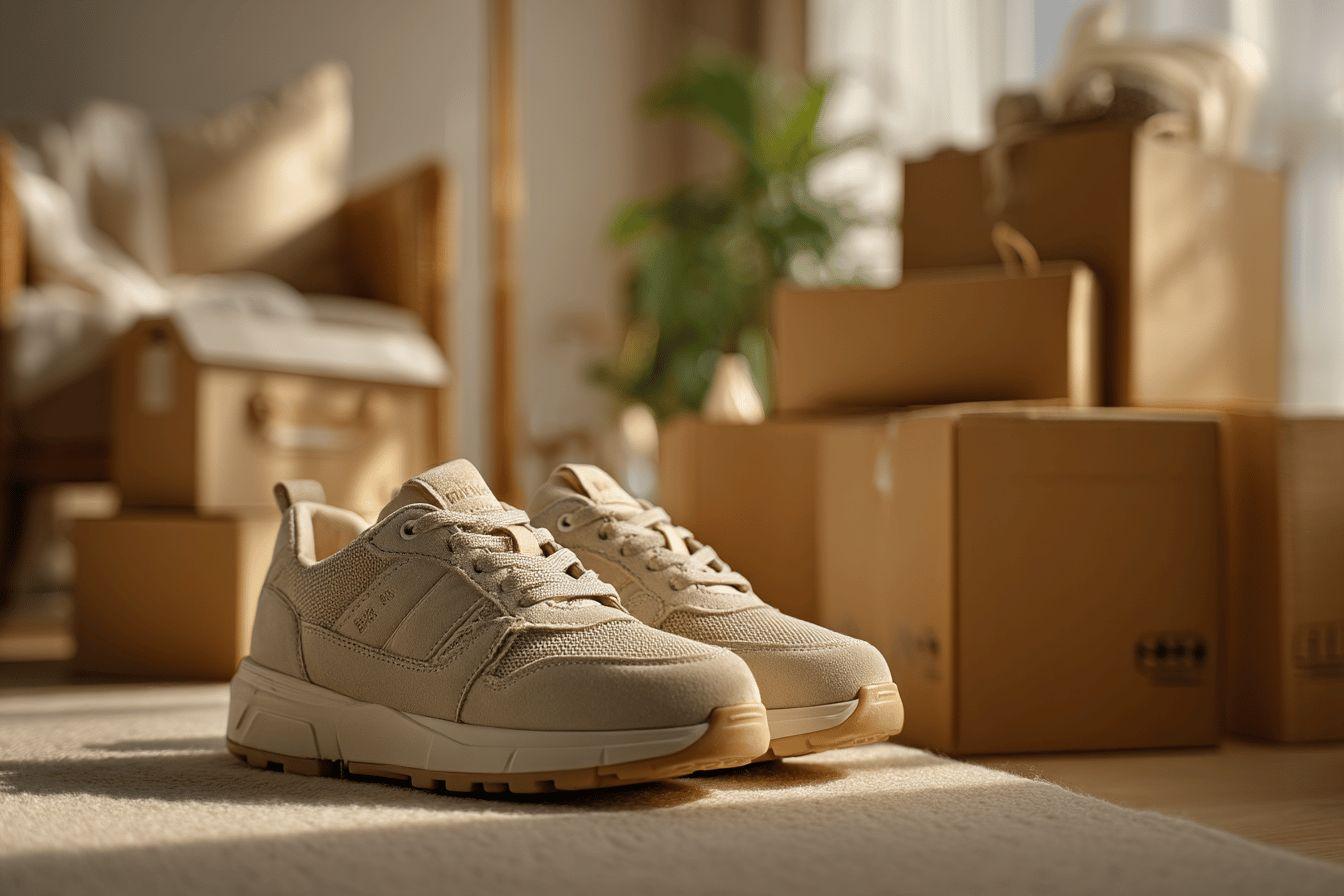Article at a glance
Swollen feet (edema) occur when fluid builds up in the tissues, causing discomfort and a feeling of tightness.
- Multiple causes: prolonged standing, excessive heat, or underlying medical conditions
- Effective natural remedies: elevating the legs to promote venous return, alternating hot and cold baths, and regular hydration to combat water retention
- Beneficial plants: ginkgo biloba improves circulation while diuretic herbal teas stimulate fluid elimination
- Medical consultation necessary if swelling persists, is accompanied by unilateral pain, or cardiac symptoms
Swollen feet, also known as edema, affect many people on a daily basis. This uncomfortable condition occurs when fluid accumulates in the tissues of the feet. If you've ever experienced that unpleasant feeling of shoes being too tight at the end of the day, you know how much this problem can affect your comfort. Fortunately, several natural remedies can help you quickly relieve this condition.
Understanding the Causes of Swollen Feet
Before examining solutions, it's essential to understand why your feet swell. Lower extremity edema can have a variety of causes, some benign and others requiring special medical attention.
Prolonged standing is one of the most common causes of foot swelling. When you remain motionless for long periods of time, gravity naturally pulls fluids toward your lower extremities. People in jobs that require standing, such as salespeople or healthcare workers, are particularly vulnerable to this phenomenon.
Excessive heat dilates blood vessels and promotes fluid retention. This is why episodes of swollen feet often intensify during the summer or during significant weather changes. Paradoxically, dehydration worsens this problem because it encourages the body to retain more water.
Certain medical conditions can also cause foot edema. The main diseases affecting the feet include venous insufficiency, heart failure, kidney problems, and certain nutritional deficiencies. Pregnancy is often accompanied by swollen feet, particularly during the third trimester.
Understanding podiatric anatomy helps to better understand this phenomenon. The different parts of the human foot form a complex system of 26 bones, 33 joints, and more than 100 muscles, tendons, and ligaments. This structure supports our entire weight and can easily suffer from excessive pressure.

| Cause | Associated Symptoms | Level of Concern |
|---|---|---|
| Prolonged Standing | Swelling Disappears at rest | Low |
| Excessive heat | Temporary swelling, hot skin | Low |
| Venous insufficiency | Persistent swelling, feeling of heavy legs | Moderate |
| Heart problems | Bilateral swelling, shortness of breath | High |
Seven natural remedies to reduce foot edema
To effectively combat swollen feet, several natural solutions have proven effective. These accessible remedies can provide quick relief without unwanted side effects.
Leg elevation is the first simple but effective method against edema. Lie down with your feet raised above your heart for 15-20 minutes, three times a day. This position promotes venous return and reduces hydrostatic pressure in your lower limbs.
Foot baths alternating between hot and cold water stimulate blood circulation. A disinfectant and soothing foot bath with a few spoonfuls of Epsom salt can intensify the benefits thanks to the anti-inflammatory properties of magnesium.
Regular hydration helps eliminate excess sodium, which is responsible for water retention. Consuming approximately 2 liters of water daily helps optimize kidney function and promotes the elimination of toxins.
- Foot massage: Light circular movements from the ankles to the knees help drain excess fluid.
- Light compression: Compression socks promote venous return.
- Balanced diet: Reducing sodium and increasing potassium helps maintain fluid balance.
- Diuretic plants: Green tea, dandelion, or cherry stem naturally stimulate fluid elimination.
Certain medicinal plants are known for their anti-edematous properties. Ginkgo biloba improves peripheral blood circulation, while red vine strengthens venous walls. A herbal tea made with these plants can be an effective addition to your daily hydration regimen. When Swollen Feet Require Medical Attention While natural remedies offer effective relief for occasional edema, some situations require medical attention. Persistent or worsening swelling despite corrective measures is a warning sign that should not be ignored. Sudden, unilateral swelling accompanied by pain may indicate deep vein thrombosis, requiring urgent treatment. Healthcare professionals also recommend seeking medical help if edema is accompanied by shortness of breath or chest pain. For those suffering from acute foot pain, a professional evaluation will help identify the precise cause and establish appropriate treatment. Prevention remains the best approach to recurrent edema. Regular physical activity, particularly swimming and walking, stimulates blood circulation and strengthens the venous system. A diet low in salt and rich in fruits and vegetables also helps maintain the body's water balance.
Ultimately, swollen feet are often a temporary discomfort that can be effectively relieved with natural methods. However, staying alert to warning signs and consulting a professional if you experience any concerning symptoms remains essential for your podiatric health.





Leave a comment
This site is protected by hCaptcha and the hCaptcha Privacy Policy and Terms of Service apply.